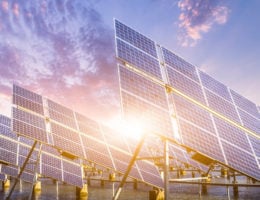Across the continent, countries are gearing up for the energy transition by updating and modernizing policy and legislative frameworks that consider the need for a renewable, decarbonized, decentralized energy supply that addresses climate change and Paris Agreement commitments.
Almost half of the population of Africa does not have access to electricity. It is, therefore, critical for the continent to increase its access to a clean, decarbonized, decentralized energy supply.
To enable this energy transition, countries across the continent are implementing policies that take into account the energy crisis. Alongside other jurisdictions, they are also launching initiatives and providing funding, investments and grants for African renewable energy projects.
In 2022, a group of African countries launched the African Carbon Markets Initiative with the aim of eventually producing 300 million carbon credits annually. To allow countries to voluntarily cooperate with each other to achieve emission reduction targets as set out in their Nationally Determined Contributions, Article 6 was introduced in 2021. Under Article 6, countries will be able to transfer carbon credits earned from the reduction of their greenhouse gas emissions to other countries to meet their climate targets.
Hydrogen markets in Africa are expected to grow exponentially but there are still multiple barriers to the widespread development of decarbonized hydrogen. Each energy sector investment faces challenges in the form of infrastructure gaps, policy, regulatory, economic and financial barriers. A recent positive development in this regard is the announcement that a dedicated blended finance fund, SA-H2, has been launched to raise USD 1 billion for the construction of green hydrogen projects in South Africa. Once established, the SA-H2 will join the SDG Namibia One Fund to offer a blended finance solution for Southern African’s green hydrogen sector.
As of the world’s top producers of many critical minerals, Africa is gearing up for its role in powering global energy transition. Its vast critical mineral store, including cobalt, copper, bauxite, chromium, high purity iron ore, platinum group metals, lithium and rare earth metals, is in high demand globally. For Africa, the focus now is on the sustainable growth of its mineral mining operations and production facilities, so that the gains from its natural resources can be of benefit to the continent and its people.
As more of Africa’s power is generated via renewable energy, the need for reliable energy storage has become increasingly important for grid resilience and flexibility. This necessitates the mass adoption of energy storage as a balancing asset. As a result, numerous battery storage projects and initiatives are underway across the continent.
The introduction of an augmented and accelerated capital expenditure deduction for the cost of constructing renewable energy infrastructure in South Africa is a boon for companies that have not yet reached their Environmental, Social and Governance goals. It provides the opportunity to undertake reportable ESG initiatives and simultaneously enjoy a reduction in tax costs. Fully leveraging this opportunity will require a comprehensive understanding of the mechanics of amended incentives and the dynamics of ESG reporting.
At COP 27 in November 2022, South Africa launched its new Just Energy Transition Investment Plan and announced a five-year investment plan for the USD 8.5 billion financing package, which was announced as part of the country’s Just Energy Transition Partnership with France, Germany, the United Kingdom, the United States and the European Union at COP 26. The JET IP is aligned with the Cabinet-approved National Just Transition Framework and outlines the investments required to achieve the country’s decarbonization commitments, while promoting sustainable development, and ensuring a just transition for affected workers and communities.
The Ministry of Forestry, Fisheries and the Environment in South Africa has published a notice excluding the development and expansion of solar photovoltaic facilities, including any associated activity or infrastructure from the requirement to obtain environmental authorization in terms of the National Environmental Management Act. Members of the public have 30 days from the date of publication (8 September 2022) to submit comments on the draft notice. The proposed exclusion for solar photovoltaic facilities presents opportunities for independent, small-scale power producers and is considered to be a step forward for the government in terms of its commitment to energy transition and to securing a reliable supply of clean energy in the country.
In February this year, the South African Hydrogen Society Roadmap was published by the South African government. This is the culmination of efforts spread over many years. As the country navigates its energy transition, the Roadmap is considered to be an important marker on its path towards implementing hydrogen development, which is envisaged to be at the centre of South Africa’s strategy for economic growth and mitigating climate change.







